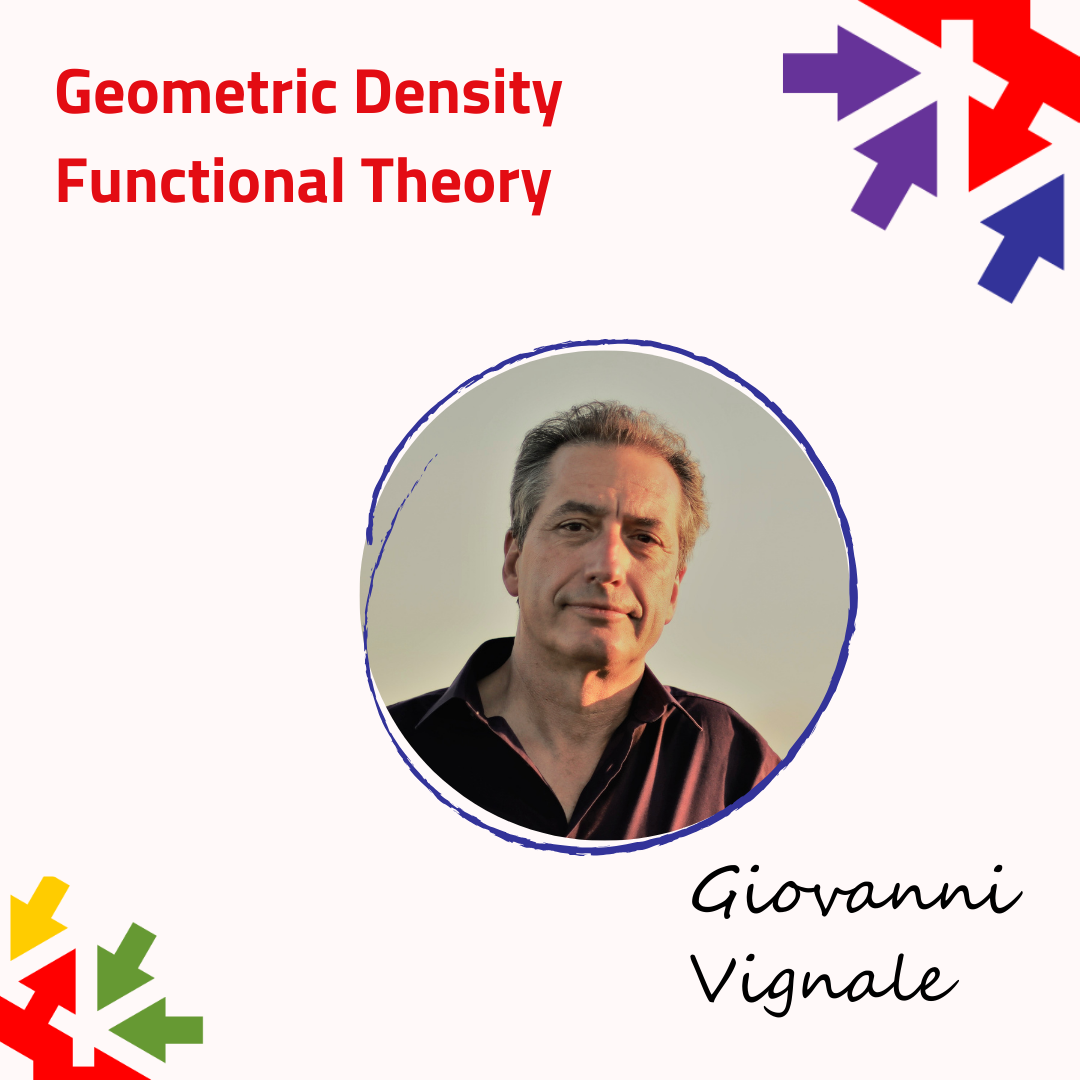- Indico style
- Indico style - inline minutes
- Indico style - numbered
- Indico style - numbered + minutes
- Indico Weeks View
Choose Timezone
Geometric Density Functional Theory
Geometric Density Functional Theory is an attempt to directly compute the universal energy functional and its (functional) derivatives from the solution of an optimization problem in which the electronic density is kept constant. 
The process can be described as "finding the ground-state of an electron gas of prescribed density". In this approach the target density is established and maintained through a geometric deformation of the original coordinates.
Starting from a basis of antisymmetric wave functions that yield the prescribed density we optimize the energy by constructing superpositions of wave functions in this set. The density constraint in this basis set has a universal form, independent of the specific choice of the density. This allows an essentially analytic calculation of the functional derivative once the optimization process is complete.
In the first stage of this project, we focus on the non-interacting kinetic energy functional Ts[n] for one-dimensional periodic systems (relevant to solid state physics). In the next stage we will tackle the more challenging problem of optimizing the full interacting energy functional F[n], from which the exchange-correlation potential is extracted.
Here we will borrow from Quantum Monte Carlo techniques to guide the search over correlated wave function of prescribed density. A "global deformation approximation" is proposed. It is worth noting that the geometric approach dovetails ongoing efforts of the AI research group at IFIM where some PIs are working to upgrade the widely used Kohn-Sham iterative method to a direct energy optimization algorithm, which can be embedded in the JAX deep learning framework enabling, among other benefits, end-to-end differentiability.